Olive Pit Propagation – Learn How To Plant Olive Pits
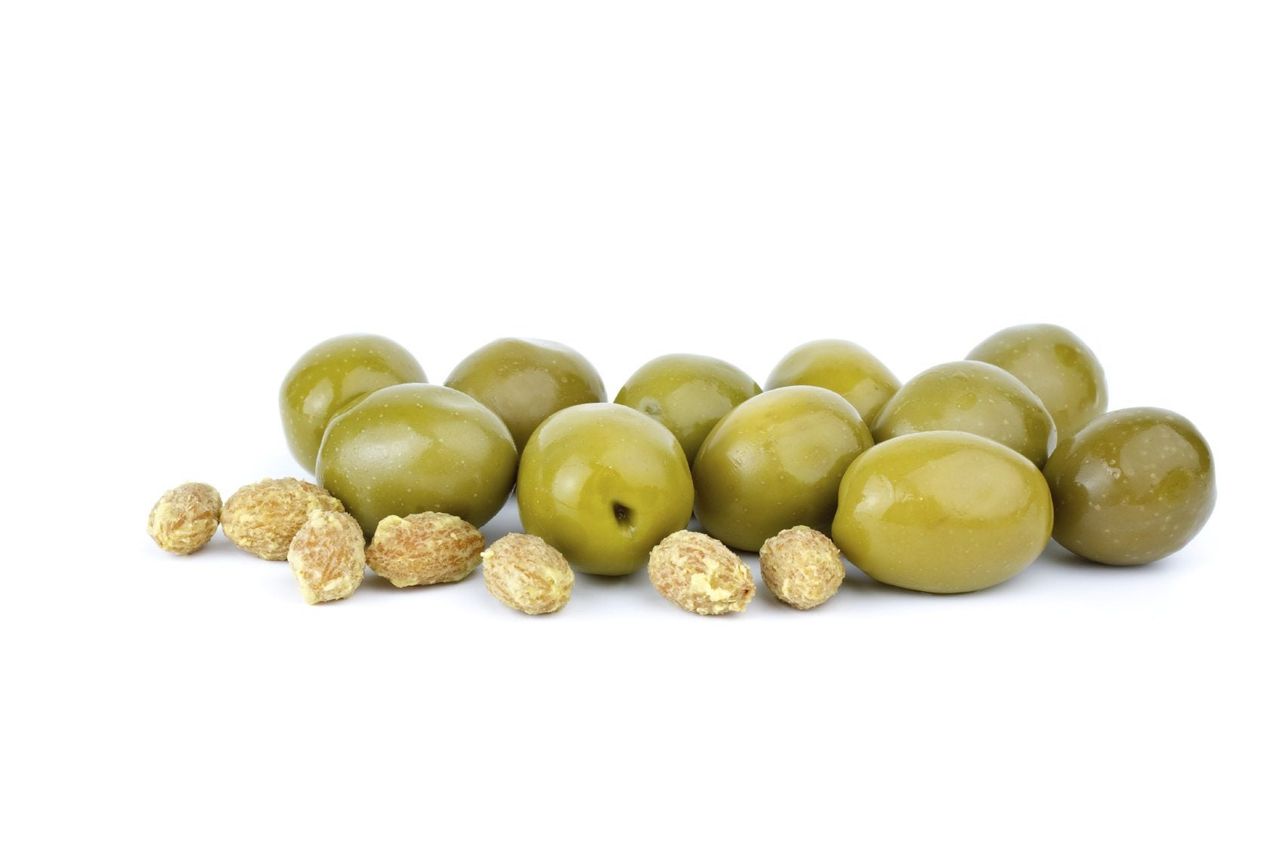
Have you ever wondered if you can you grow an olive pit? I mean, you can grow an avocado from a pit so why not an olive? If so, how do you plant olive pits and what other olive seed info might be useful?
About Olive Pit Propagation
Yes, you can grow an olive pit, but there’s one caveat – it has to be a “fresh” pit. By this I mean not a pit from a store bought olive. The olives that we eat are treated with lye, among other things, and are unlikely to engender olive pit propagation. Oh, by the way, did you know that both green and black olives are the same? The only difference is when they are picked. Green olives are picked before ripe, while black olives are allowed to ripen on the tree.
Olive Seed Info
Olive trees (Olea europaea) grow in areas of long, warm summers and mild winters and can be grown in USDA growing zones 8-10. Olive trees are primarily grown from cuttings but growing olive trees from pits or seeds is also possible.
The pits need to be thoroughly cleaned and processed to break dormancy and facilitate germination. When growing olive trees from pits, keep in mind that the germination rate is frustratingly low, so hedge your bets by planting multiple pits. Wondering how to plant olive pits? Read on.
How to Plant Olive Pits
The first step in growing olive trees from pits is to gather seeds in the fall once the fruit has ripened, but before they turn black. Don’t gather the olives from the ground but rather harvest the fruit directly from the tree. Use only olives that are unmarred by insect holes or other damage. Put the olives in a bucket and lightly hammer the flesh to loosen it.
Cover the crushed olives with water and soak overnight, stirring the water on occasion. Skim out any floaters, which are likely rotten. Drain the water. Using two scouring pads or the like, rub the olives to remove any residual flesh and then rinse them thoroughly.
Carefully, nick the pointed end of the olive pits with a pair of bolt cutters. Don’t break all the way through the hull or the seed will be ruined. Soak them for 24 hours in room temperature water. Now it’s time to sow the olive pits. Use a well-draining soil mix of half sand and half seed compost in individual 6-inch (15 cm.) containers.
Gardening tips, videos, info and more delivered right to your inbox!
Sign up for the Gardening Know How newsletter today and receive a free copy of our e-book "How to Grow Delicious Tomatoes".
Sow the olive seed to a depth equal to two times their diameter. Put the pots into a shaded cold frame with a germination mat set at 60 degrees F. (16 C.) for about a month. Keep the top 2 inches (5 cm.) of each pot moist while the seed germinates but allow the top ¼ to dry out between waterings to deter fungal and bacterial disease.
Increase the germination mat’s temp to 70 degrees F. (21 C.) after the first month of warm stratification and continue to water as before. Seedlings should emerge in this second month. When they do, begin to drop the temperature of the mat by 5 degrees (15 C.) each week until the temp is equal to the exterior temperature.
Acclimate the seedling to outdoor conditions gradually over the course of a couple of weeks. Keep them in a lightly shaded area during the hot summer months and then transplant them in mid-autumn when the weather is again cool and moist.

Amy Grant has been gardening for 30 years and writing for 15. A professional chef and caterer, Amy's area of expertise is culinary gardening.
-
 Best Plants For Container Gardening: Try These 10 Easy Ornamental And Edible Options For Pots
Best Plants For Container Gardening: Try These 10 Easy Ornamental And Edible Options For PotsGardening with pots is a quick way to make more of smaller spaces – but which edibles and ornamentals are right? Here are some of the best plants for container gardening
By Mary Ellen Ellis
-
 DIY Cloche Ideas For Frost Protection In The Garden
DIY Cloche Ideas For Frost Protection In The GardenExtend the growing season into early spring and late fall with an easy, DIY garden cloche. These simple ideas can yield benefits for gardens of all sizes.
By Susan Albert
-
 How To Press Olive Oil: Making Olive Oil At Home
How To Press Olive Oil: Making Olive Oil At HomeInterested in making oil from olives? It's easier than you might think. Click here to learn how to press olive oil.
By Amy Grant
-
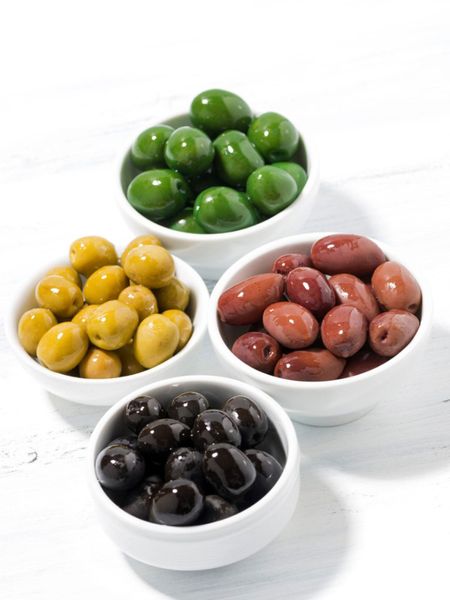 Olive Tree Appetizer: Creating A Christmas Tree Made Of Olives
Olive Tree Appetizer: Creating A Christmas Tree Made Of OlivesA Christmas tree made of cheese and colorful olives is something you’ll want to try. Click here for tips on making an olive Christmas tree.
By Mary H. Dyer
-
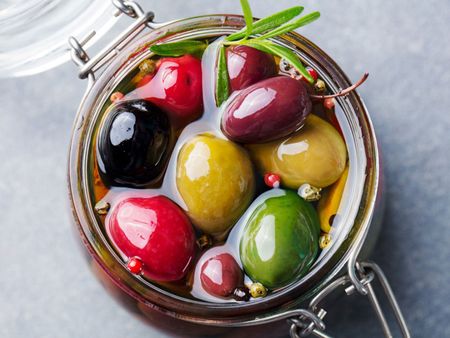 Olive Preservation Guide: How Do You Brine Olives
Olive Preservation Guide: How Do You Brine OlivesCured olives are a delicious snack or addition to recipes. There are many methods for curing olives. Learn how to preserve olives here.
By Bonnie L. Grant
-
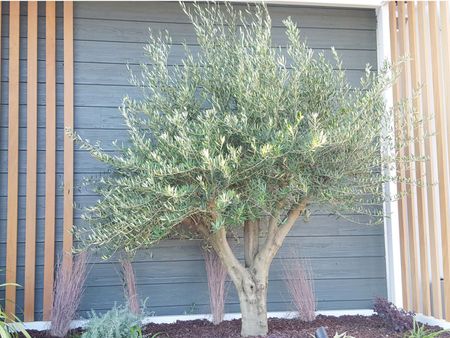 Growing An Olive Tree With No Olives: What Is A Fruitless Olive Tree
Growing An Olive Tree With No Olives: What Is A Fruitless Olive TreeWhat is a fruitless olive tree, you may ask? Many are not familiar with this beautiful tree, commonly used for its beauty in the landscape. The olive tree with no olives may be the perfect tree for your southern landscape. Click this article to learn more about fruitless olives.
By Becca Badgett
-
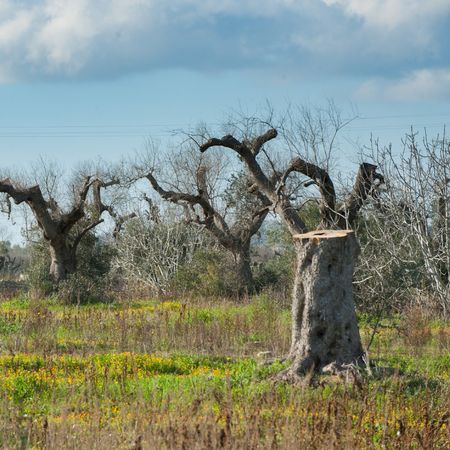 Olive Tree Xylella Disease: Learn About Xylella Fastidiosa And Olives
Olive Tree Xylella Disease: Learn About Xylella Fastidiosa And OlivesBy Mary H. Dyer
-
 Olive Oil Information: Learn How To Use Olive Oil
Olive Oil Information: Learn How To Use Olive OilOf course, we know how to use olive oil with foods, but have you ever wondered about olive oil?s other uses? There are, indeed, other uses for olive oil. The following article contains information about what exactly olive oil is and how to use olive oil beyond cooking.
By Amy Grant
-
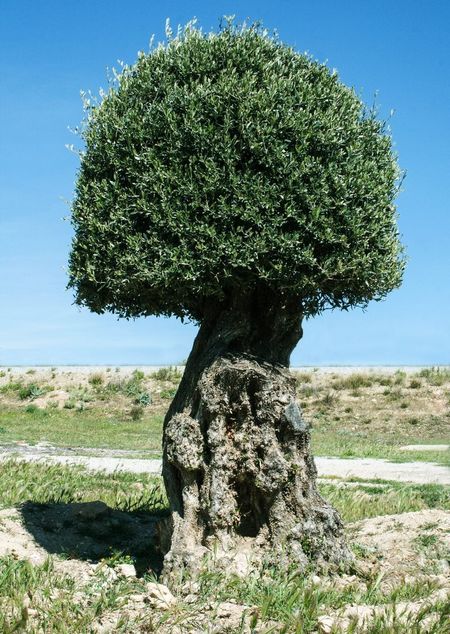 Olive Tree Topiaries – Learn How To Make An Olive Topiary
Olive Tree Topiaries – Learn How To Make An Olive TopiaryOlive trees are native to the Mediterranean region of Europe. They have been grown for centuries for their olives and the oil they produce. Olive tree topiaries are popular. If you are considering making an olive tree topiary, the following article will help.
By Teo Spengler
-
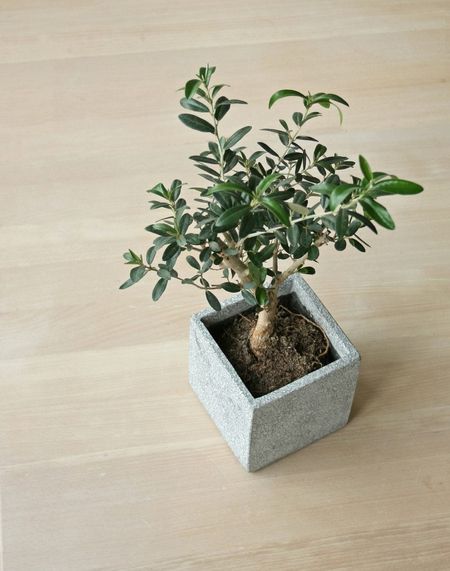 Olive Houseplants – Growing A Potted Olive Tree Indoors
Olive Houseplants – Growing A Potted Olive Tree IndoorsOlive trees as houseplants? If you?ve ever seen mature olives, you may wonder how it?s possible to transform these reasonably tall trees into olive houseplants. But it is not only possible, indoor olive trees are the latest houseplant craze. Learn more here.
By Teo Spengler
